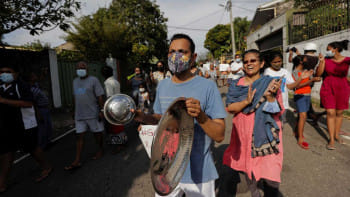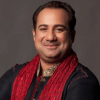Is Pakistan setting on a course for disaster?

What would you do if you were in government at this point in time? Wouldn't you consider what seems to be the most sensible option: call for a countrywide election so whosoever wins, can come in with a fresh, five-year mandate to deal with the myriad crises Pakistan represents today?
I'd do that for sure. I have a feeling you might too, as all of us have had it up to our noses with the poisonous, acrimonious political atmosphere against the backdrop of extreme financial hardship not just for those trapped at the bottom of the pyramid but the middle class as well.
Sadly, you and I are not the government or some state institution, are we? So, here is what is likely to happen. At least for now, the establishment is giving the impression that its leadership has had enough of what they see as a protégé gone rogue and are struggling to deal with that fact. This does not mean they are prepared to reconcile with him or his brand of populist politics.
For his ( Shahbaz Sharif) part, he is not prepared to abandon his denomination of politics simply because it has delivered him a large support base. That dividend may only be fully ascertained in an election but he knows it is potentially far bigger than at any time in the past.
His other major source of strength is seemingly supporters and believers in his cause in the judiciary. While this "political role" of the judges, as one senior judge has called it, may have split the arbiters of justice down the middle, many say it is sure to cement his support among an influential section in the institution. These factors will spur him on.
The major parties in the coalition government, namely PML-N and PPP, were at the receiving end of some appalling treatment at the hands of the last government headed by the PTI. Some of those strong-arm methods were likened to modern-day fascism.
So, despite presiding over a train-wreck of an economy, they are not eager to see the PTI back in power, as they are fearful of a repeat of what happened to them, when some of their leaders were imprisoned for months on end without trial and others convicted in dubious 'managed verdicts'.
As the PDM completes its first year in office, it too has left no stone unturned to hound the PTI. The latter may be grateful that it has apparent support in some sections of the judiciary as relief is not long in coming and it is spared the experience of its opponents when it was itself in power.
Nonetheless, some fundamental issues remain to be addressed. If PDM leaders still stake a claim to being democratic, as one member of the coalition said, speaking on condition of anonymity, elections should be held even "if they have to watch the results from Dubai/elsewhere abroad to see who wins".
This seasoned parliamentarian told me that democracy means upholding the will of the people, regardless of whether they elect a leader bereft of a democratic ethos, and cited the example of Donald Trump in the United States and Jair Bolsonaro in Brazil. Both came to power and exited through elections.
"If the PTI wins the election and starts acting as it did the last time, we will be well within our rights to take our protest both inside and outside parliament." He added: The state of the economy will mean, multitudes will join us.
Having looked at the various players, their stance and also at fundamental principles, it is equally relevant to acknowledge that the Constitution and the rule of law has been followed selectively based on the likes/dislikes of those interpreting it. Some argue that of late, constitutional provisions have also been rewritten to pave the way for certain desired political outcomes.
The sacred document has also often been subjected to assault by those with brutal power. In such cases, the support of the interpreters of the Constitution has been vital in undermining it and without such apparent collusion, any mutilation wouldn't have been possible.
What does our analysis and a very brief look at our history tell us about what lies ahead? Well, the first indication will come early next week when the apex court will learn from the Election Commission of Pakistan whether it has received the funds from the government for holding the elections to the Punjab Assembly next month.
It will be just as significant to keep an eye on divisions in the Supreme Court as any more public manifestations of discord may limit how much pressure the court can bring to bear on the government, possibly in the shape of contempt notices etc, in case it fails to deliver funds to the ECP by the deadline.
Analysts have already looked at the communique issued after a meeting of the National Security Committee of the Cabinet and said it is clear the top priority has been accorded to the launch of operations against Tehrik-e Taliban Pakistan (TTP) terrorists rather than provision of security to the elections especially by the military and paramilitary troops.
On the issue of TTP, the last government and its backers in the military and intelligence services have been slammed and the recent upsurge in terror attacks has been attributed to the policy of freeing terrorists from prisons and the resettlement of several thousand TTP foot soldiers in erstwhile Fata.
This deadlock between key arbiters of the country's destiny augurs well neither for the country's stability nor its economy. Against this backdrop, it remains a forlorn hope that some sanity prevails and every player agrees to a dialogue and the interlocutors can plot a course to safety. One shudders to think what'll happen otherwise.
This article was first published in Dawn, an Asia News Network (ANN) partner of The Daily Star.
Abbas Nasir is former editor of Dawn.

 For all latest news, follow The Daily Star's Google News channel.
For all latest news, follow The Daily Star's Google News channel. 











Comments